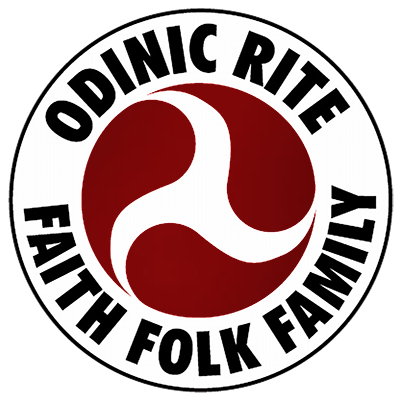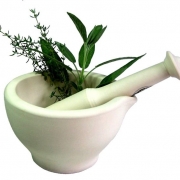Laundry and the butterfly: a study into the harm done by conventional detergents
In this article I have sought to briefly explore and explain the harmful effects that conventional household washing/cleaning detergents can have upon the environment, its ecosystems, and of course us, for we are of course inextricably linked to the fate and welfare of our surrounding natural environment.
During this article, I make extensive references to Ecover, the leading ecological brand of cleaner, as it was during my work at a supermarket that I first read of, on the back of a bottle of Ecover washing up liquid, the virtually universal ignorance of the poisons we use to clean our homes and clothes with. Ecover can be found in nearly all supermarkets and I urge the reader to consider changing whatever conventional cleaners they currently use for this or another ecological brand. The price difference is negligible, the difference being often no greater than a few pennies.
Phosphorus and Eutrophication: death by asphyxiation
Phosphorus is found in dishwashing detergents, and is used primarily to soften ‘hard’ water, which reduces the spots and film on dishes. Phosphorus also makes the water’s pH more alkaline, which can help in food removal.
The problem with phosphates is that they contribute to eutrophication in rivers, a natural process which is accelerated and boosted to ecosystem-threatening levels by man’s contribution of phosphates from cleaning and industry. Eutrophication means an excessive growth and subsequent decay of primary plant life, the initial growth being attributed to the increased fertility engendered by the phosphates, and the subsequent decay being caused by starvation of oxygen within the water resulting from this overpopulation of plant life. Lack of oxygen is not only harmful to the remaining plant life, but of course to the fish and other animal populations in the river. In fact it results in decreased biodiversity in the whole area, as the destruction of the lower levels of the food chain subsequently compromise the chain higher up – the birds and mammals. Inevitably this will have an effect on the local human population as well, who may rely on the river for sustenance, whether directly in the form of water and food, or indirectly from tourism and angling.
Ecover does not use phosphates in any of its products.
Surfactants: toxic to humans and ecosystems
According to Ecover,
“Most cleaning products are based on surfactants, which can wash the protective coating from a frog’s skin”.
Surfactants (surface acting agent) are basically wetting agents that lower the surface tension of a liquid, allowing it to be spread more easily. They are found in, among many other things, detergent and fabric softener. Toxic to animals, humans and ecosystems, and despite having proposed or voluntary restrictions in their use, they are still widely used by an unknowing populace.
Ecover ensures its surfactants biodegrade before reaching the natural environment.
Toilet cleaner: a potent brew
‘Critical dilution’ is the amount of water it takes to neutralise a dose of a chemical so that it can be safely put into the river. Ecover’s toilet cleaner takes 400 times less water to be safely neutralised than common cleaners.
In addition, the limescale remover utilised is based on citric acid, which biodegrades completely in 24 hours.
Washing up liquid and aquatic life
A chemical commonly used in washing up liquid called styrene, is harmful to humans and ecosystems, and like surfactants, it is especially toxic to fish and frogs. It is therefore important for us to use a product incorporating ingredients that biodegrade quickly and have minimal impact on aquatic life.
Additional note: As we do with fruit and vegetables, it is advisable to thoroughly rinse crockery and cutlery in clean water after washing them in any detergent, as residues of the washing liquid may remain on the utensils and later be consumed with food.
Plant-based, not petrochemical
Many cleaning agents incorporate petrochemicals, which are harmful to life, do not biodegrade and are extracted from unsustainable resources. Brands like Ecover utilise plant-based ingredients which, on the contrary, biodegrade completely and leave minimal traces in the natural environment. And of course, being plant-based, are sustainable and easily replenished.
‘Optical brighteners’ are an illusion
Many washing products contain a so-called ‘optical brightener’, which is a chemical that reflects light and makes your clothes appear brighter and extra clean. These ‘brighteners’ in fact have NO effect on the wash performance/wash hygiene, merely acting as a kind of superficial polish, and can actually cause skin problems and sensitivity.
Yet more illusions from conventional products…
Foam boosters, found in products such as washing up liquid, create artificial bubbles. For some reason it would appear that most people would believe, without logic, that lots of bubbles in a wash equates to high cleaning power. This is nonsense, as bubbles have no improved effect on wash performance or hygiene, they are entirely superficial and the foam booster chemicals used to produce them are actually damaging to the environment.
Ecover refuse to use foam boosters.
Artificial fragrances and the butterfly
According to Ecover, the ‘pleasant’ artificial fragrances found in nearly all common cleaning products, are being linked to the increasing scarcity of butterflies. These petrochemical-based fragrances confuse the butterfly and other insects, interfering with the life-cycle/mating process, as they remain potent even after they have been washed back into the rivers. In the words of Ecover, ‘the last thing a [reproducing] butterfly needs is the smell of your laundry’. The behaviour of fish is also adversely affected.
Petrochemicals and biodiversity
As we have noted, artificial fragrances are poorly degradable, and like other petrochemically-derived products, are highly resilient and build up within the food chain. Taking the most obvious example, they are found in the fat tissue of fish dwelling in contaminated water, fish which are the consumed by animals and also humans. Any animal or human eating enough of these contaminated fish is likely to feel the adverse effects of such a build up of poisons, hence we see reduced biodiversity and often the monoculture of a dominant, unaffected species in such areas.
Conclusion
So as we have seen, not only can conventional cleaners strongly impact the natural environment and do terrible damage to local ecosystems, they can cause skin sensitivity and irritation among people, especially the young. This is all the more likely given that we spend most of our time in clothes that have been washed in cleaners containing these chemicals, which remain on the fabric for a long time.
Ecover and other ecological brands are the way ahead for us, and are one more step towards natural harmony between our Folk, Midgard and her other more vulnerable inhabitants.
Sources
http://www.ecover.com/gb/en/
http://en.wikipedia.org/wiki/Eutrophication
http://en.wikipedia.org/wiki/Surfactant
Sam Coles AOR




Hail Sam!
A great article and most interesting. I use ASDA’s own eco-friendly products and they are cheaper than ecover and Just as friendly and effective.
Excellent article Sam!!
This is just the kind of article that we need for this site. If anyone else would like to contribute then let me know.
Great article, Sam. My wife and I consider ourselves fairly conscious of issues related to food, but we discovered that we were part of the “unknowing populace” when we used regular laundry detergent on cloth diapers. My son broke out some from this, so of course we discontinued use. This is yet another example of the literal poisons of Loki’s agents!
Hails and thank you for your positive feedback, it is very encouraging. There has been a little discussion on the OR member’s Forum about this topic, to which some readers here may not have access. I would like to add below some additional comments of mine that should be read in conjunction with the above article. Thank you:
“After having gone out and bought the family a few Ecover products to put my money where my mouth is and to get the ball rolling in my family, I showed my parents the article I had written in order to convince them of these products.
My father, who although thought that the article was good, was concerned that I was playing devil’s advocate for Ecover, and was wondering whether they were any different from the big multi-corps and just another global parasite-deceiver. He asked if I had read any independent studies on Ecover which verified their claims and ethics, and I answered no and felt rather stupid and amateur. I am not a scientist or qualified researcher, so my articles will never be at a ‘journal’ level, I admit that, but I can still do my best in highlighting an important issue.
As I was at work all day just after the discussion with my dad, I was unable to investigate further and post anything on the Forum or Guardians. There don’t seem to be many studies undertaken available on the Internet, but below are a couple. The first takes about five minutes to read, and the second is available only with a subscription by the looks of it. The fact is, Ecover is a global brand that wants to expand and make a profit, but it has good ethics and wishes to tailor it’s products to the water quality of different areas, as you will read in the first study. Inevitably, it is a case of choosing the lesser evil: conventional global products, or eco-friendly global products. Or, if you are very dedicated and able to, produce your own products – that would be the ultimate choice, but maybe it is not possible for everyone? Perhaps that article Asrad mentioned (on the Forum) about creating your own products from natural ingredients will shed some light. More to come I hope…”
Case study one – http://www.cleanproduction.org/popup.ecover.html
Case study two –
http://www.accessmylibrary.com/coms2/summary_0286-34734161_ITM
Greetings,
Most all of the powdered clothes soaps today, tell you to use a large amount of soap. I worked at a laundry mat years ago and was told that if you see soap bubbles on the top of your water after the washer starts washin’, you have too much soap in it. Dont use the measuring cup that they supply, I use a 1/4 cup, even less on smaller loads. The companies just want you to buy more soap from them. You want to see a little suds on top of the water,but not much. It wont rinse out.
Thanks, Kellie S
Great Post 😀
thought you might like my machinima film the butterfly’s tale~
http://www.youtube.com/watch?v=y1fO8SxQs-E
Bright Blessings
elf ~